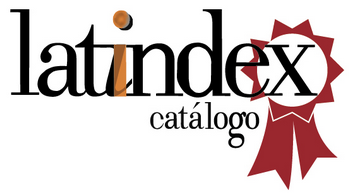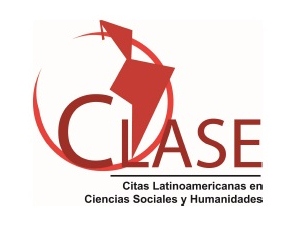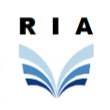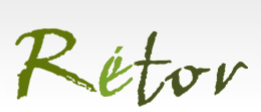Relaciones entre narrativa y argumentación: breve aproximación teórica
Resumen
El objetivo principal de este trabajo es presentar una clasificación de las diferentes relaciones entre narrativa y argumentación. Para ello definimos los conceptos de narración y argumentación como cierto tipo de actos de habla, y de texto narrativo y texto argumentativo como conjuntos en los que predominan actos de habla de uno u otro tipo. Nuestra clasificación de los tipos de relaciones que puede haber entre narrativa y argumentación están basadas en estas caracterizaciones, y se organiza según dos criterios. El primero, de carácter estructural, se basa en considerar las diferentes formas en las que un acto de habla argumentativo puede aparecer en un texto narrativo, atendiendo al sujeto que lo emite: un personaje, el narrador, o el autor. El segundo, de carácter funcional, considera los distintos roles que puede desempeñar un acto de habla argumentativo dentro de un texto narrativo, o un acto de habla narrativo dentro de un texto argumentativo. Las clasificaciones presentadas se compararán y analizarán con respecto a las aportaciones de Paula Olmos (2013) y Gilbert Plumer (2015).Citas
Ayers, L. (2010). Getting arguments out of narrative. Manuscrito no publicado. Compartido el 19 de octubre de 2010 en ARGTHRY, el listserv de la Ontario Society for the Study of Argumentation, Ontario, Canadá.
Bermejo-Luque, L. (2011). Giving Reasons. A Linguistic-Pragmatic Approach to Argumentation Theory. Argumentation, 26(2), 291-296.
Lázaro Carreter, F. (1987). La literatura como fenómeno comunicativo. En van Dijk, T. A., & Mayoral, J. A. (eds.), Pragmática de la comunicación literaria (pp. 151-170). Bibliotheca Philologica. Serie Lecturas. Arco/Libros.
Currie, G. (1990). The Nature of Fiction. Cambridge: Cambridge University Press.
Dijk, T. A. van (1996). Estructuras y funciones del discurso. México: Siglo XXI.
Fisher, W. y R. Filloy. (1982). Argument in drama and literature: An exploration. En J. R. Cox y C. A. Willard (eds), Advances in Argumentation Theory and Research (pp. 346-362). Carbondale: Southern Illinois University Press.
Gadamer, Hans-Georg. (1975). Truth and method (2 (1989)). London. Sheed and Ward Ltd. https://doi.org/10.1086/486539
García-Carpintero, M. (2016). Relatar lo ocurrido como invención: una introducción a la filosofía de la ficción contemporánea. Madrid: Cátedra.
Garrido Domínguez, A. (1996). Teoría de la literatura y literatura comparada: el texto narrativo. Madrid: Síntesis.
Genette, G. (1980). Narrative Discourse. Ithaca, New York: Cornell University Press.
Govier, T., y L. Ayers. (2012). Logic and Parables: Do These Narratives Provide Arguments? Informal Logic, 32(2), 161-189.
Grice, H.P. (1975) Logic and conversation. En P. Cole and J. Morgan (eds) Syntax and Semantics 3: Speech Acts (pp.41-58). New York: Academic Press.
Hunt, L. H. (2009). Literature as Fable, Fable as Argument. Philosophy and Literature, 33(2), 369-385.
Iser, W. (1979). The act of reading. London: Routledge and Kegan Paul.
Kock, C. (2009). Choice is not true or false: The domain of rhetorical argumentation. Argumentation, 23(1), 61-80.
Nussbaum, M. C. (1992). Love’s knowledge: essays on philosophy and literature. Oxford: Oxford University Press.
Olmos, P. (2013). Narration as argument. En Mohammed, D. y M. Lewinsky (eds.), Virtues of Argumentation. Proceedings of the 10th International Conference of the Ontario Society for the Study of Argumentation (OSSA), 22-26 May 2013 (pp. 1-14). Windsor, Ontario: OSSA.
Plumer, G. (2015). On novels as arguments. Informal Logic, 35(4), 488-507.
Prince, G. (2003). A dictionary of narratology. Nebraska: University of Nebraska Press.
Romero Álvarez, M. L. (1996). El relato periodístico como acto de habla. Revista Mexicana de Ciencias Políticas Y Sociales, 41, 9-27.
Searle, J. (1979). A Taxonomy of Illocutionary Acts. En Searle, J., Expression and Meaning: Studies in the Theory of Speech Acts (pp. 1-29). Cambridge: Cambridge University Press.
Sperber, D. (2000). Metarepresentations in an evolutionary perspective. En Sperber, D. (ed.), Metarepresentations: a multidisciplinary perspective (pp. 117-137). Oxford: Oxford University Press.
Walton, D., Reed, C., y F. Macagno. (2008). Argumentation Schemes. Cambridge: Cambridge University Press.
Williamson, G. (2014). Inference [artículo]. SLTinfo. Recuperado de: https://www.sltinfo.com/inference/ [June 18, 2017]
Williamson, T. (1996). Knowing and Asserting. The Philosophical Review, 105(4), 489-523.
Referencias de obras literarias, periodísticas y cinematográficas
Auster, P. (1994). El cuaderno rojo. (Traducción de Navarro, J.). Barcelona: Anagrama (Colección Quinteto).
Campos, M. A. (2001). Literatura en voz alta: entrevistas con escritores. Costa Rica: Universidad Nacional Costa Rica.
Careaga, R. (2014). Paul Auster, escritor: “Escribir es como una enfermedad, el mundo real no es suficiente.” La Tercera. Recuperado de: https://www.latercera.com/noticia/paul-auster-escritor-escribir-es-como-una-enfermedad-el-mundo-real-no-es-suficiente/
Esopo. (2015). Fábulas de Esopo. (Traducción de Sabaté Font, J.). Barcelona: Penguin clásicos.
Jiménez, D. (2013). El lugar más feliz del mundo. Madrid: Kailas Editorial.
Mann, T. (2012). La montaña mágica. (Traducción de García Adánez, I.). Barcelona: Edhasa.
Montaigne, M. E. (2014). Ensayos. (Traducción de Román y Salamero, C., Thiebaut, C., Marinas, J. M. y G. Torné). Barcelona: Penguin clásicos.
Monterroso, A. (1998). La oveja negra y demás fábulas. Madrid: Alfaguara
_________ (2014). El paraíso imperfecto: antología tímida. Barcelona: Debolsillo.
Nabokov, V. (1975). Lolita. (Traducción de Tejedor, E.). Barcelona: Grijalbo.
Thoreau, H. D. (2011). Desobediencia civil y otros textos. (Traducción de Cardona, F.L.). Barcelona: Ediciones Brontes. Weiner, M. (productor). (2007). Mad Men [serie de TV]. California: AMC, Lionsgate television.
Una vez que un texto es aceptado para su publicación en Quadripartita Ratio, sus autores deben firmar dos documentos de carácter legal: una Licencia de uso y una Declaración de autoría.
Con la Licencia de uso, los autores autorizan la publicación de su obra y la difusión de ésta (integración en bases de datos, difusión en nuestras redes sociales, reediciones posibles, etc.). No obstante, se autoriza la descarga, reproducción y distribución de todos nuestros contenidos publicados, siempre que no se modifique el contenido y se indique su origen (nombre de la revista, volumen, número, páginas y dirección electrónica del documento).
Con la Declaración de autoría, los autores manifiestan que la obra es de su autoría, original e inédita.









